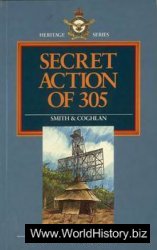Various human attempts to read and interpret the will of the gods and/or predict future events. In ancient Mesopotamia, specially trained priests or scribes, known as baru, closely studied the livers or lungs of sacred animals; the movements of the heavenly bodies; the behavior of animals, including the flight patterns of birds; the layout of cities; the movements of clouds and puffs of smoke; the occurrence of famines, disease epidemics, floods, and other disasters; and other naturally occurring phenomena or objects. The diviners regarded any deviations from the “normal” patterns of these phenomena as possible candidates for omens, divine signs of impending change, either good or bad. Through repeated observations, diviners came to believe that certain specific events or phenomena were sure signs of specific outcomes. For example, the seventh-century B. C. Assyrian king Esarhaddon asked his chief diviner to interpret the behavior of some ravens he had witnessed. The diviner’s answer, which was preserved on a clay tablet, was as follows:
As to Your Majesty’s request addressed to me concerning the incident with the ravens, here are the relevant omens: If a raven brings something into a person’s house, this man will obtain something that does not belong to him. If a falcon or a raven drops something he is carrying upon a person’s house or in front of a man, this house will have much traffic— traffic means profit. If a bird carries meat, another bird, or anything else, and drops it upon a person’s house, this man will obtain a large inheritance.
Of particular note were two unusual or noteworthy events that occurred at approximately the same time. It was commonly believed that this did not happen by mere coincidence; rather, one event must have a causal relationship with the other. If a king died soon after a great disaster, for instance, the disaster was seen as an omen foreshadowing the monarch’s death. Because of such beliefs, Mesopotamian rulers like Esarhaddon generally consulted their royal diviners before embarking on a trip or a military campaign to make sure the signs were favorable.
See Also: astrology and astronomy; doctors and medicine; oracles




 World History
World History









